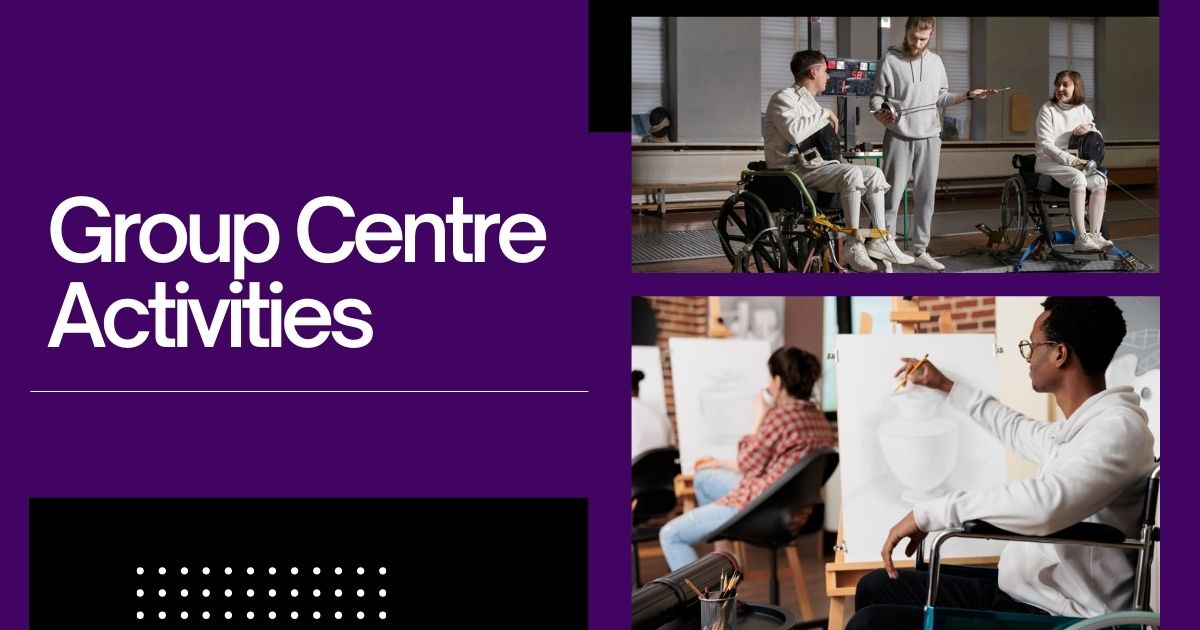Group centre activities are a great way for NDIS participants to connect with others, learn new things, and have fun in a supportive setting. NDIS providers offer these activities to help people with disabilities grow, develop skills, and build relationships. Whether it’s arts and crafts, cooking, sports, or social events, group centre activities allow participants to participate in things they enjoy while working toward their goals.
What Are Group Centre Activities?
Group centre activities take place in a community or centre-based environment. These activities, known as Group Centre Activities, range from hobbies and creative projects to learning important life skills. NDIS providers create programs suited to the needs and preferences of the people they support. The activities can focus on building skills, boosting confidence, and helping participants interact with others.
Each activity is designed to help participants improve their daily living skills and enjoy meaningful experiences. Whether it’s learning how to cook a meal, participating in a group exercise class, or joining a social event, these activities are all about making life better and more enjoyable for participants.
Why Social Interaction Matters
One of the key benefits of this service is the chance for social interaction. Many people with disabilities experience isolation, which can be harmful to their mental and emotional well-being. Group activities provide a solution by bringing people together in a friendly and welcoming environment.
By taking part in group centre activities, participants can meet new people, make friends, and share experiences. These interactions help reduce feelings of loneliness and build a sense of community. When participants engage with others, they feel more connected and supported, which can greatly boost their self-esteem and confidence.
Learning New Skills
This service is a fantastic way for participants to learn and practice new skills. These can include everyday skills like cooking, cleaning, and budgeting, as well as creative skills such as painting, music, and dance. These activities are a fun way to learn while also improving communication and problem-solving abilities.
Some activities focus on developing personal skills, such as how to handle stress, set goals, or improve emotional well-being. Learning new skills not only helps participants become more independent but also gives them a sense of accomplishment and pride in their achievements.
Staying Physically Active
Physical activity is important for everyone, and this activity often includes ways to keep participants active and healthy. From sports and fitness classes to dance and yoga, these activities promote physical well-being and can help improve strength, mobility, and flexibility.
Staying physically active has many benefits, including better health, improved mood, and increased energy levels. Physical activities are also a great way for participants to enjoy themselves while staying fit.
Building Confidence and Independence
This activity provides a safe space for participants to try new things and take on challenges. As they learn and succeed in different activities, their confidence grows. This boost in confidence can make a big difference in other areas of life, helping participants feel more capable of handling daily tasks and making decisions.
By learning practical skills and gaining confidence, participants can also work toward greater independence. For example, they may feel more comfortable preparing their meals, managing their finances, or planning outings on their own.
A Supportive and Fun Environment
One of the best things about this activity is the supportive and friendly environment. NDIS providers and staff are there to help participants every step of the way, ensuring they feel comfortable and included. The activities are designed to be fun and engaging, making it easy for participants to enjoy themselves while learning and growing.
Whether it’s through games, workshops, or social events, this activity provides a space where participants can feel valued, heard, and supported. The positive and encouraging environment allows participants to explore their interests, make connections, and enjoy life to the fullest.
Conclusion
This service is a wonderful way for NDIS participants to engage in social, learning, and physical experiences. These activities not only help participants build important life skills but also provide a sense of belonging and connection. By joining group centre activities, participants can make new friends, boost their confidence, and work toward greater independence.
Overall, these activities bring people together in a fun and supportive setting, helping NDIS participants live happier, healthier, and more fulfilling lives.






Comments